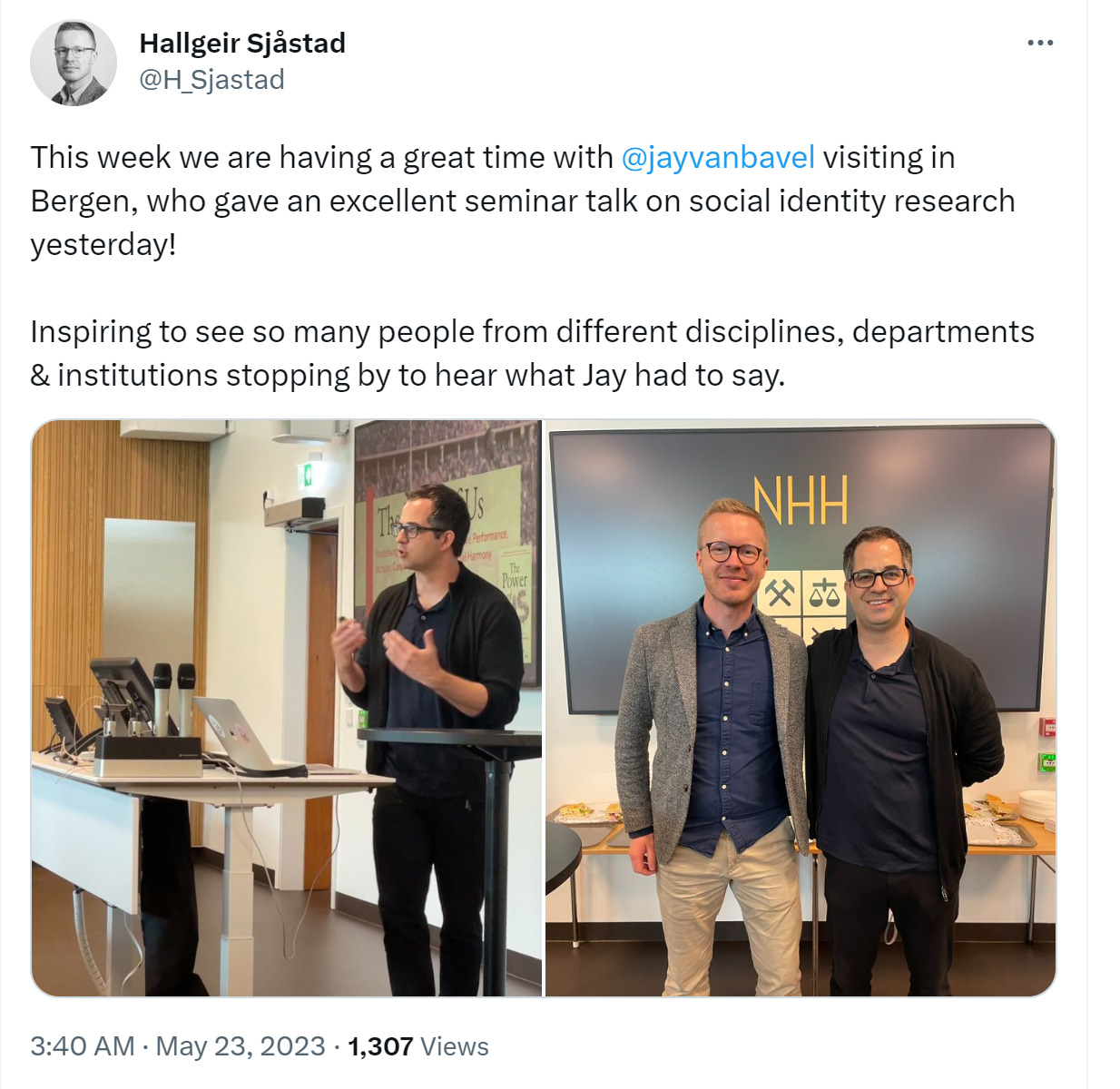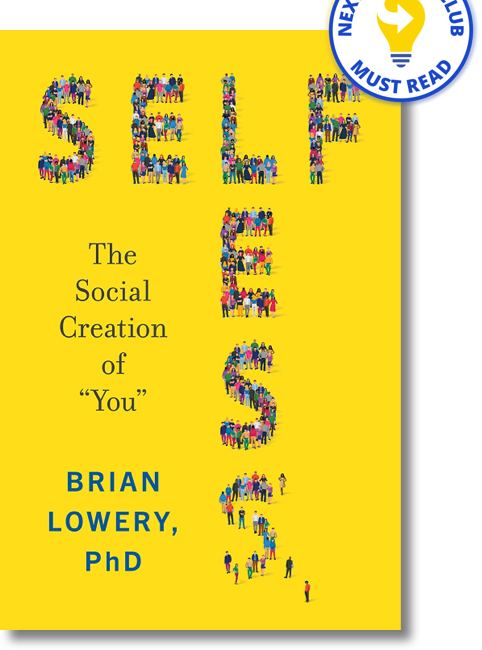Take the WHO AM I? CHALLENGE by completing our identity test
Issue 72: We created a free tool to help people better understand their core identities - try it out at powerofus.online!
The next time you walk into the bookstore, stroll through the SELF HELP section. You might notice that most of the books have a common theme. From Atomic Habits to The 7 Habits of Highly Effective People to The Subtle Art of Not Giving a F*ck, the bestselling self-help books are focused on an atomic version of the self. They frame the self as a hero or heroine, trying to navigate the challenges of the world in order to achieve great things—or at least not to be waylaid by others on our path to success.
Unfortunately, the miscast the self as a loner. Instead of this atomized version of the self, we all contain a number of identities. And these identities are very often shaped by the people and places in our lives. These are social identities. As the poet Walt Whitman wrote, “Do I contradict myself? Very well then I contradict myself, (I am large, I contain multitudes.)”
In our book, we tried to put readers in touch with this more accurate view of the self. To do this, we both completed the sentence "I am ____________" multiple times. We described our results in the very first chapter of our book. Here are Dom and Jay’s top 10 identities:
To help change how society thinks about the self, we have created a free online tool on our website to help people better understand their identities. The WHO AM I? Challenge will encourage you to reflect on your identities and summarize the top 10 that come to mind.
The challenge is an opportunity to not only learn more about ourselves, but to share this with others and, in turn, learn more about them. So please share your results once you do the task. You can challenge your family, friends, or colleagues to do the challenge and discuss your results. Does it change how you think of them or how you think about yourself?
The WHO AM I? CHALLENGE is based on The Twenty Statements Test (TST), a well-known instrument that is widely used to evaluate self-concept. The TST was originally developed in the 1950s by social psychologist Manfred Kuhn as a way of determining the degree to which we base our self-concepts on our membership in different groups.
In the book, we describe identities as either being individual, relational, or collective. You can learn about what these categories mean in our task, and find out which category your responses most align with!
One interesting experiment has shown that perceptions of oneself when taking the 20 statements test can be influenced by exposure to different environments. In one iteration of the Twenty Statements Test administered by psychologist Dacher Keltner and his colleagues at the University of California, Berkeley, responses to the test differed as a function of environment.
One group of research participants completed the test while facing a full-size replica of a Tyrannosaurus Rex skeleton in the life sciences building on campus; the other completed it while facing a hallway. The goal of exposure to the T-rex was to induce a feeling of awe, which the Greater Good Science Center at UC Berkeley defines as “The feeling we get in the presence of something vast that challenges our understanding of the world, like looking up at millions of stars in the night sky.”
This is Osborn, the T-Rex skeleton at UC Berkeley
In the study, people who took the test in front of the awe-inducing T-Rex were three times likelier to describe themselves as part of something larger (a collective identity) compared to those who completed the questionnaire facing the hallway. As Keltner describes in his book, Born to Be Good, awe shifts a person's thinking "toward the collective."
Now its your turn to take the CHALLENGE yourself! The challenge is to name ten of your identities, share them on social media, and tag two friends to share their identities. Tell us how many of your most important identities are individual, relational, or collective.
The online tool for the WHO AM I? Challenge was made possible by our full-stack developer, Danny Nguyen.
News and Events
Our documentary film, The Power of Us: Protecting Democracy in a Time of Extreme Polarization was selected to screen at the 2023 Astoria Film Festival in New York! We will be showing the film along with 8 other short films on June 11th, 12:30pm at the Kaufman Zukor Theatre in Astoria, Queens.
There will be a live Q&A with both Jay and Dom in appearance after the screening. Please join us there to watch the film, ask questions, or just say hi.
Buy your ticket on Film Freeway, and we hope to see you there!
Jay has been traveling all over Europe since the summer started, and gave a talk about THE POWER OF US at the Norwegian School of Economics (NHH) this week. He followed this with a workshop on the themes from our book for 100 non-academics (hosted by Agenda Vestland). Please reach out to us if you would like us to to give a talk or workshop on THE POWER OF US at your organization or community.
Learn more about THE POWER OF US
If you like our newsletter, we encourage you to check out our award-winning book “The Power of Us: Harnessing Our Shared Identities to Improve Performance, Increase Cooperation, and Promote Social Harmony”. You can learn more about the book or order it from the links on our website (here). We keep the newsletter free, but are extremely grateful if you have a chance to purchase the book or buy it for a friend who wants to learn more about group psychology.
Catch up on the last one…
Our last newsletter was an interview with Brian Lowery on this new book, SELFLESS which is a great compliment to our book. If you liked our book, we recommend SELFLESS!
INTERVIEW: Selfless with Brian Lowery
This week, we feature Brian Lowery, a social psychologist and Stanford professor whose new book, Selfless: The Social Creation of You presents a provocative, powerful theory of identity, arguing that there is no essential "self"—our selves are social creations of those with whom we interact —exploring what that means for who we can be and who we allow o…









